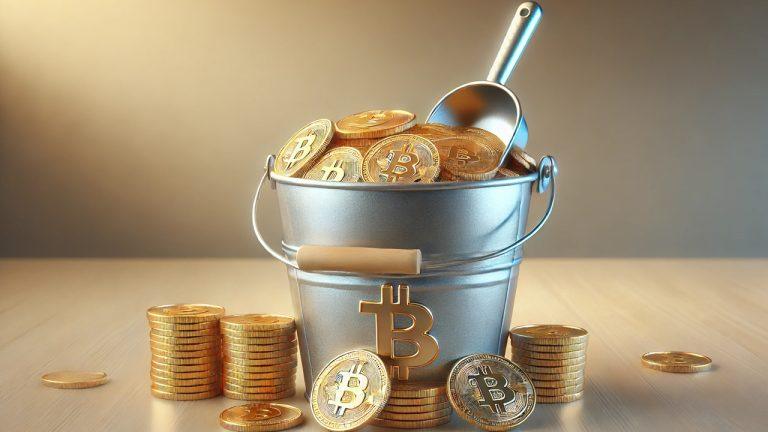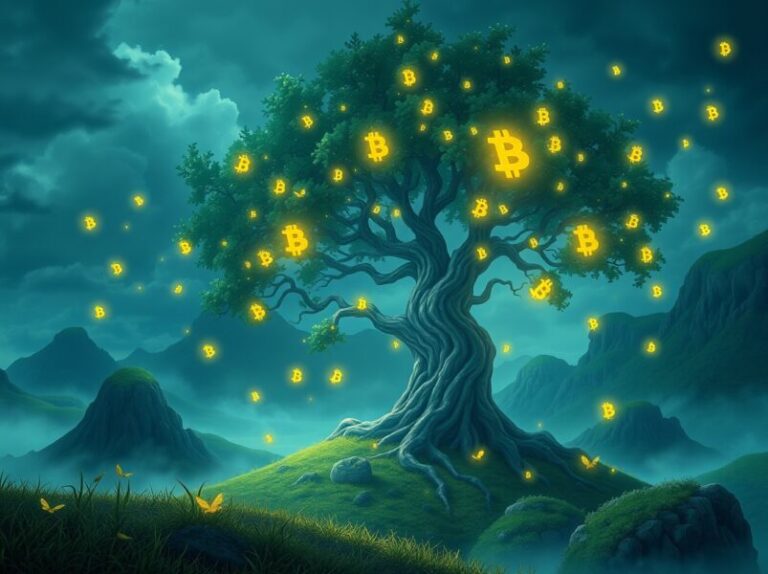Jeff Park, Head of Alpha Strategies at Bitwise Asset Management, has gone on record to suggest that recent developments at the gold market might trigger a mass exodus to Bitcoin. Notably, the Bank of England is under scrutiny for extended delivery times on physical gold, fueling renewed debate about the reliability of gold-backed assets. As …
Bitcoin’s Breakout? Expert Says Gold’s Biggest Disaster Is Coming

Jeff Park, Head of Alpha Strategies at Bitwise Asset Management, has gone on record to suggest that recent developments at the gold market might trigger a mass exodus to Bitcoin. Notably, the Bank of England is under scrutiny for extended delivery times on physical gold, fueling renewed debate about the reliability of gold-backed assets. As a reaction, Park writes via X:
“I’m counting down the days until a logistical disaster (or outright fraud) in the physical delivery of these assets shatters the faith of even the most devout gold believers, driving them straight into Bitcoin’s arms,” Park wrote via X.
Bitcoin Over Gold
Park’s statement comes amid reports that the Bank of England, which purportedly holds around 5,000 metric tonnes of gold, has delayed deliveries from what used to be a few days to four-to-eight weeks. According to a source familiar with the matter, “The wait to withdraw bullion stored in the Bank of England’s vaults has risen from a few days to between four and eight weeks,” indicating that the central bank is “struggling to keep up with demand.”
A Global Supply Chain Under Pressure
Market observers attribute these delays to an unprecedented surge in transatlantic shipments and rising gold inventories in the United States. “People can’t get their hands on gold because so much has been shipped to New York, and the rest is stuck in the queue,” an industry executive told reporters. The central bank’s backlog has coincided with growing stockpiles on the Comex commodity exchange in New York, which has seen its gold inventory rise nearly 75%—from 533 metric tonnes to 926 metric tonnes—since November’s US election.
History of Scandals Undermining Trust
Park further underscored the industry’s history of logistical and fraud incidents by pointing to two notable scandals. He first mentioned the Qingdao Metal Scandal. “Here’s the hilarious story called the Qingdao Metal Scandal,” Park wrote. He recounted how traders in China reportedly used the same stockpiles of copper, aluminum, and nickel as collateral multiple times, only for it to be revealed that much of the actual metal was missing.
Park highlighted another recent case with the London Metal Exchange (LME) Nickel Fiasco. “The LME found out that some of their nickel went missing! Instead of bags of the registered metals, bags of stones arrived. Even more shocking is that this is not LME’s first nickel fraud.”
Trafigura and the $500M Disappearance
More recently, Park referenced reports that global commodities giant Trafigura discovered a shortfall of $500 million worth of fuel in Mongolia. “I already posted about this, but worth refreshing that Trafigura lost $500mm of fuel in Mongolia three months ago,” Park wrote.
Such episodes, according to Park, illustrate the vulnerability of physical commodity markets. “You can take the ‘physical’ fuel out of Mongolia,” Park added, “but you can’t take spiritual fuel of Genghis Khan out of Mongolia.”
Bitcoin’s Digital Advantage
Advocates of digital assets like Park argue that Bitcoin, often touted as the ‘hardest’ asset on Earth, sidesteps the logistical complexities that plague the physical commodities sector. Yet, paradoxically, it still faces hurdles when it comes to regulatory acceptance and ETF structures.
“Meanwhile, the hardest asset on Earth [Bitcoin] can’t even be contributed in-kind to its own beloved Bitcoin ETFs, despite having near-zero logistics costs. But sure, let’s keep pretending this system makes sense,” Park remarked.
Regulatory Roadblocks to Crypto Adoption
He went on to suggest that current regulatory frameworks remain a major obstacle: “Part of why people are so worried about ‘regulation’ in crypto is because they keep putting the securities lens on the asset that doesn’t actually work. Once you put the commodities lens on as the starting point, the world all of a sudden starts to make a LOT more sense.”
A Pivotal Moment for Gold and Bitcoin
The Bank of England hasn’t issued a formal statement on the delays. Still, observers view this as a wedge moment for traditional gold investors. If the backlogs persist, it could stoke further skepticism about the reliability of physical gold markets. This moment, according to Park and others, could redirect focus and investment to Bitcoin. Unlike gold, it needs no physical delivery or storage.
At press time, BTC traded at $95,961.










